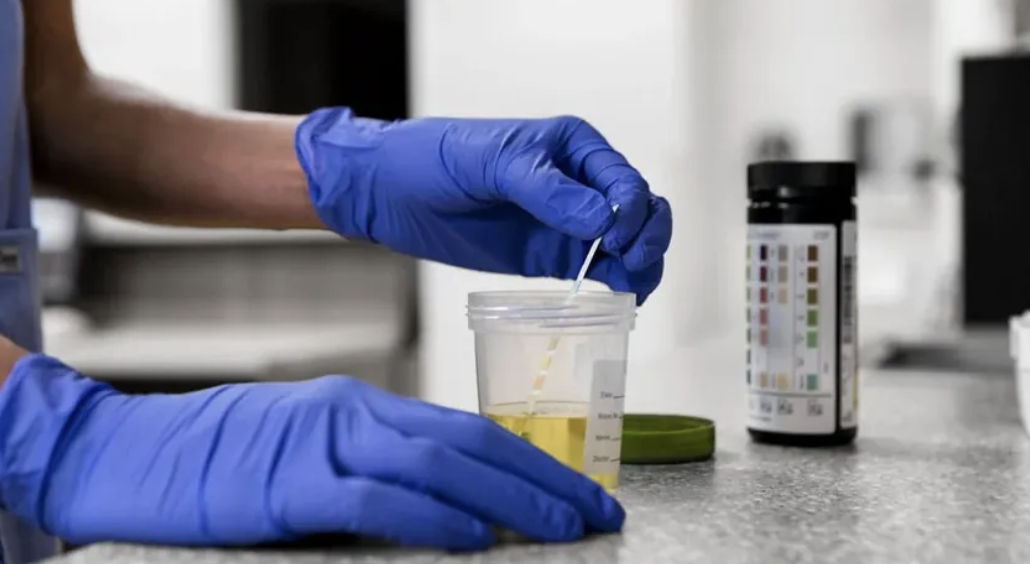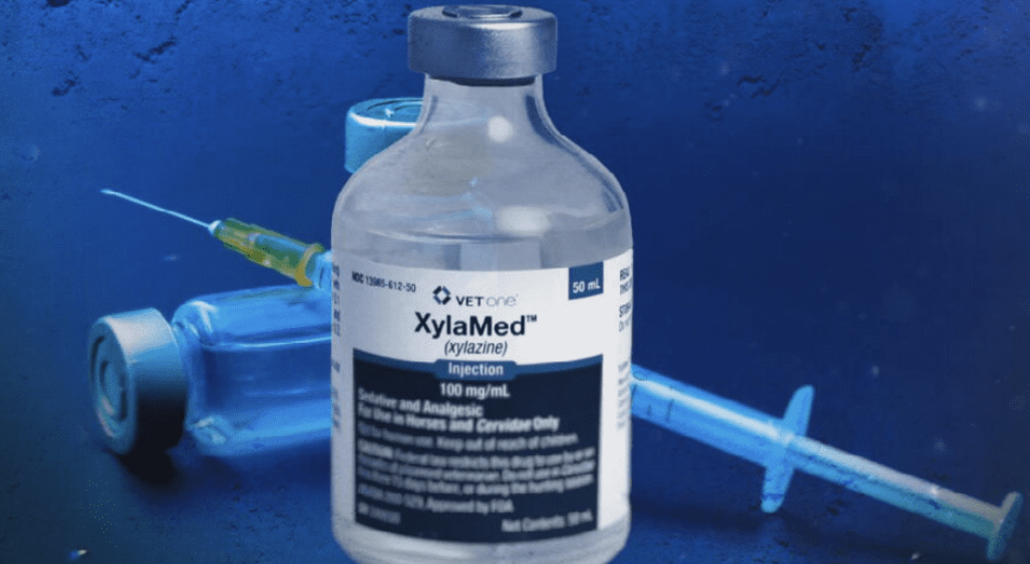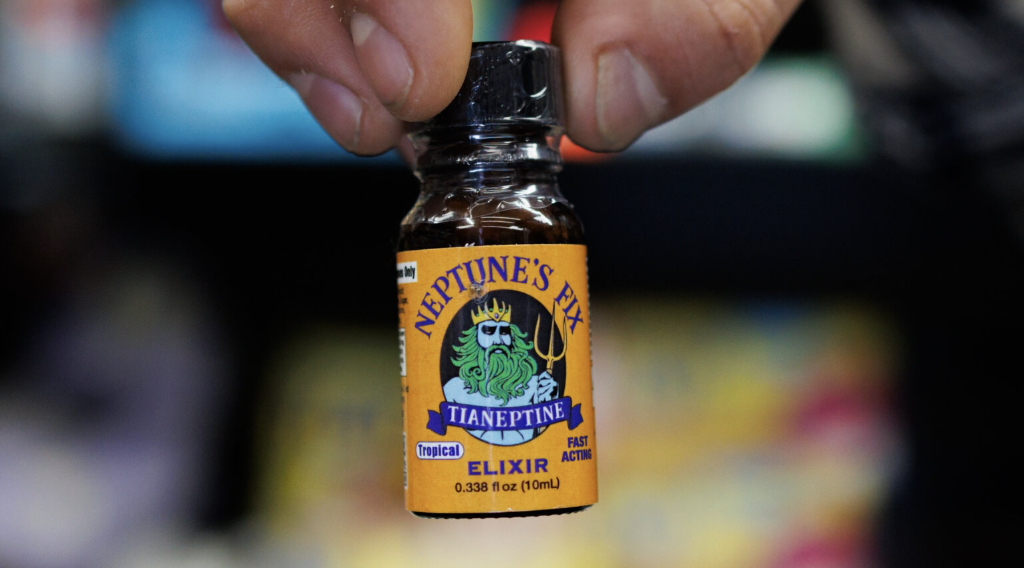Can Suboxone help treat alcoholism? Suboxone and alcoholism are topics of interest, as Suboxone, used for opioid addiction, is being studied for alcohol dependence. It’s not FDA-approved for this use, but some research shows it might reduce alcohol cravings. This article reviews the studies, compares it with approved treatments, and highlights risks.
Key Takeaways
- Suboxone shows potential for alleviating alcohol cravings and withdrawal symptoms but lacks FDA approval for treating alcohol addiction.
- Combining Suboxone with alcohol can lead to severe health risks, including respiratory suppression and increased side effects, necessitating medical supervision.
- FDA-approved medications like Naltrexone, Acamprosate, and Disulfiram are recommended as primary treatments for Alcohol Use Disorder before considering Suboxone.
Can Suboxone help treat alcoholism?
Suboxone (buprenorphine/naloxone) is primarily known for its role in treating opioid addiction by minimizing withdrawal symptoms and reducing cravings. However, there is growing interest in its potential benefits for individuals struggling with alcohol dependence.
While Suboxone is not approved by the FDA for treating alcohol addiction, some studies suggest it might help alleviate cravings and withdrawal symptoms. This raises an intriguing question: could Suboxone be a viable off-label treatment for alcohol addiction?

How Suboxone works in opioid addiction
Suboxone’s effectiveness in treating opioid addiction lies in its composition. It contains buprenorphine, a partial opioid agonist, which binds to opioid receptors in the brain but produces a milder effect compared to full opioid agonists like heroin or morphine. This binding action helps reduce cravings and withdrawal symptoms without delivering the same euphoric high, thereby lowering the risk of misuse.
Additionally, the naloxone component acts as an opioid antagonist, discouraging abuse by causing withdrawal symptoms if the medication is injected.
What studies suggest about Suboxone for alcohol cravings
Research on Suboxone’s impact on alcohol-related brain activity and drinking behavior is promising yet inconclusive. Some studies indicate that Suboxone can reduce cravings for alcohol and alleviate withdrawal symptoms such as anxiety and agitation. Moreover, certain findings suggest that Suboxone may help diminish alcohol cravings after an initial abstinence period.
However, experts recommend that Suboxone treatment be combined with therapy and lifestyle changes for more effective recovery. It’s important to note that unlike some medications, Suboxone cannot be taken while drinking alcohol, as it can lead to severe side effects. Taking buprenorphine can also affect alcohol consumption, with higher doses generally reducing intake.
Suboxone vs. approved medications for alcoholism
While Suboxone shows potential benefits for treating alcohol dependence, it lacks FDA approval for this use. In contrast, medications like Naltrexone, Acamprosate, and Disulfiram have been specifically approved for treating Alcohol Use Disorder (AUD) and have demonstrated effectiveness over time.
This section will compare naltrexone vs suboxone, highlighting their mechanisms and efficacy in treating substance use disorders.
Naltrexone: The gold standard
Naltrexone is widely regarded as the gold standard for reducing alcohol cravings. It works by blocking opioid receptors in the brain, which diminishes the rewarding effects of alcohol and helps curb the urge to drink. Naltrexone has been recognized for its safety and efficacy over three decades, making it a preferred choice for treating AUD. It is especially effective for individuals who struggle with controlling their alcohol consumption and those with a family history of alcoholism.
However, for those using alcohol as a sedative, Naltrexone may not be as effective.
Suboxone: Off-label use in alcohol addiction
Although Suboxone for alcohol use is off-label, it lacks FDA approval and widespread clinical endorsement for this purpose. While some practitioners may administer Suboxone in cases of alcohol addiction, it is important to note that this use is not backed by extensive clinical research or official guidelines.
Can Suboxone be used safely in people who drink?
Combining Suboxone and alcohol is exceptionally risky. Both substances depress the central nervous system, leading to severe health complications like respiratory depression, overdose, and even death. This interaction enhances the effects of both substances, increasing the risk of severe side effects.
This section explores the specific risks and the importance of medical supervision when using Suboxone in individuals who consume alcohol.

Side effects of mixing Suboxone and alcohol
Mixing Suboxone with alcohol can amplify side effects like nausea, dizziness, and impaired motor coordination, significantly heightening the risk of accidents and stronger intoxication symptoms. Long-term use of both substances together can lead to serious issues such as respiratory suppression, which may result in organ damage or brain injury due to lack of oxygen. Users may also experience significant cognitive impairment and lethargy when they mix alcohol.
The combination can exacerbate sedative effects and increase the risk of severe drowsiness, weakened immune system, harmful effects, and potentially fatal outcomes, particularly when a central nervous system depressant is involved.
Clinical guidance and medical supervision
Medical professionals strongly advise against consuming alcohol while taking Suboxone to prevent increased risk of overdose and other dangerous health effects. Regular medical supervision is crucial for individuals on Suboxone, especially if they have a history of alcohol misuse. Healthcare providers should closely monitor patients and provide comprehensive education about the risks of drinking alcohol while on Suboxone.
A comprehensive treatment plan that includes counseling, behavioral therapies, and regular check-ups is essential for ensuring safety and effectiveness in treatment.
Suboxone for co-occurring opioid and alcohol addiction
Suboxone has proven effective in treating individuals with both opioid and alcohol use disorders, addressing the complexities of dual addiction. This section will explore the prevalence of dual diagnosis and the treatment models that integrate medication-assisted treatment (MAT), therapy, and behavioral interventions.
How common is dual diagnosis?
Dual diagnosis, where individuals suffer from both substance use and mental health disorders, is alarmingly common. Approximately 25.8% of adults diagnosed with any psychiatric disorder also experience substance use disorders. Among those with substance use disorders, about 36.5% also have a dual diagnosis with psychiatric conditions.
Nearly 50% of individuals with a mental illness will face a substance use disorder at some point in their lives. This high prevalence underscores the need for effective treatment strategies that address both substance abuse and conditions simultaneously.

Treatment models for dual addiction
Integrated treatment models that combine mental health and substance use services are essential for effectively managing dual diagnosis. Successful treatment often involves a multidisciplinary approach, including medical, psychiatric, and social support.
Strategies for concurrent alcohol and opioid drugs dependence typically combine behavioral therapies with pharmacological options, such as buprenorphine or methadone, to address both opioid use disorder and alcohol effectively. Integrated programs that address both alcohol and opioid use disorders usually show better outcomes than those treating each disorder separately.
Risks and limitations of using Suboxone for alcoholism
While Suboxone shows potential for treating alcohol dependence, it is important to acknowledge its limitations and potential risks. The concurrent use of Suboxone and alcohol poses significant risks, including enhanced effects and severe side effects. Furthermore, the lack of FDA approval and standardized guidelines for using Suboxone in treating alcohol addiction raises concerns about its safety and efficacy.
Lack of clinical consensus
There is no uniform agreement in the medical community regarding the effectiveness and safety of using Suboxone for treating alcohol dependence. This lack of consensus leads to varied treatment approaches and confusion among healthcare providers. Research into the effects of combining Suboxone and alcohol remains limited, contributing to differing opinions. Some studies suggest potential benefits, but results are not consistently replicated across the literature.
The absence of definitive clinical trials leaves many clinicians unsure about the best practices for managing patients with both alcohol and opioid use disorders.
Potential for misuse or over-reliance
Patients might develop a dependency on Suboxone itself, leading to suboxone addiction if not used under medical supervision. Chronic use of Suboxone and alcohol together can result in serious health issues, including respiratory suppression and potential brain damage. The combination can lead to a risk of binge drinking, especially if a person experiences a lapse in abstinence.
Regular use of alcohol while on both suboxone may contribute to the development of a substance use disorder involving either or both other substances, including drug use, alcohol abuse, drug dependency, and suboxone abuse.
What to consider before using Suboxone for alcohol addiction
Before starting Suboxone for alcohol dependence, it is crucial to assess potential alcohol use patterns and the overall impact on treatment outcomes.
This section will guide readers on important factors to evaluate with their healthcare provider.
Medical history and co-occurring conditions
Individuals with a history of substance use disorders or mental health issues may require tailored treatment approaches when using Suboxone. Patients should disclose any co-occurring mental health issues, as these can complicate the treatment process.
Managing physical health conditions, such as cardiovascular disease or high blood pressure, alongside addiction treatment is crucial. Additionally, Suboxone can interact negatively with other medications, making it essential to review a patient’s complete medical history.
FDA-approved alternatives should be tried first
Consider FDA-approved treatments for alcohol use disorder before utilizing Suboxone for this purpose. The FDA has approved three prescription medications for treating AUD: Acamprosate, Disulfiram, and Naltrexone, each with varying effectiveness, including the potential use of a drug like Suboxone.
Acamprosate, Disulfiram, and Naltrexone are medications used to support alcohol abstinence:
- Acamprosate is most effective for maintaining abstinence in individuals who have already stopped drinking.
- Disulfiram works by inducing unpleasant reactions when alcohol is consumed, promoting compliance only when taken under supervision.
- Naltrexone decreases the urge to drink by blocking the pleasurable effects of alcohol in the brain.
Medications like Topiramate and Gabapentin, though not FDA-approved for AUD, may also help reduce alcohol use.
Bottom Line: Suboxone and alcoholism
While Suboxone shows potential for assisting with alcohol dependence, it is primarily designed for opioid addiction and lacks FDA approval for treating Alcohol Use Disorder (AUD). The off-label use of Suboxone for alcohol addiction presents significant risks, including severe side effects and the potential for misuse. It is crucial to consider FDA-approved treatments first and consult with healthcare providers to develop a comprehensive treatment plan that includes medical supervision, behavioral therapies, and regular check-ups. Ultimately, informed decisions and a multidisciplinary approach are essential for effective recovery.
FAQs about Suboxone and alcoholism
Can Suboxone be used to treat alcohol addiction?
Suboxone is not FDA-approved for treating alcohol addiction, even though some studies indicate it may help reduce alcohol cravings. Therefore, it's important to consult a healthcare professional for appropriate treatment options for alcohol use disorders.
What are the risks of mixing Suboxone and alcohol?
Mixing Suboxone and alcohol significantly increases the risk of severe side effects like nausea, dizziness, and respiratory depression. It is crucial to avoid this combination to protect your health.
Are there FDA-approved medications for alcohol use disorder?
Yes, there are FDA-approved medications for alcohol use disorder, including Naltrexone, Acamprosate, and Disulfiram. These medications can effectively support recovery efforts.
Can you drink alcohol while taking Suboxone?
Drinking alcohol while taking Suboxone is highly discouraged, as it can significantly increase the risk of severe side effects. It's best to avoid alcohol to safeguard your health.
Is Suboxone a long-term solution for alcohol addiction?
Suboxone is not typically viewed as a long-term solution for alcohol addiction; it should be used as part of a comprehensive treatment plan.















